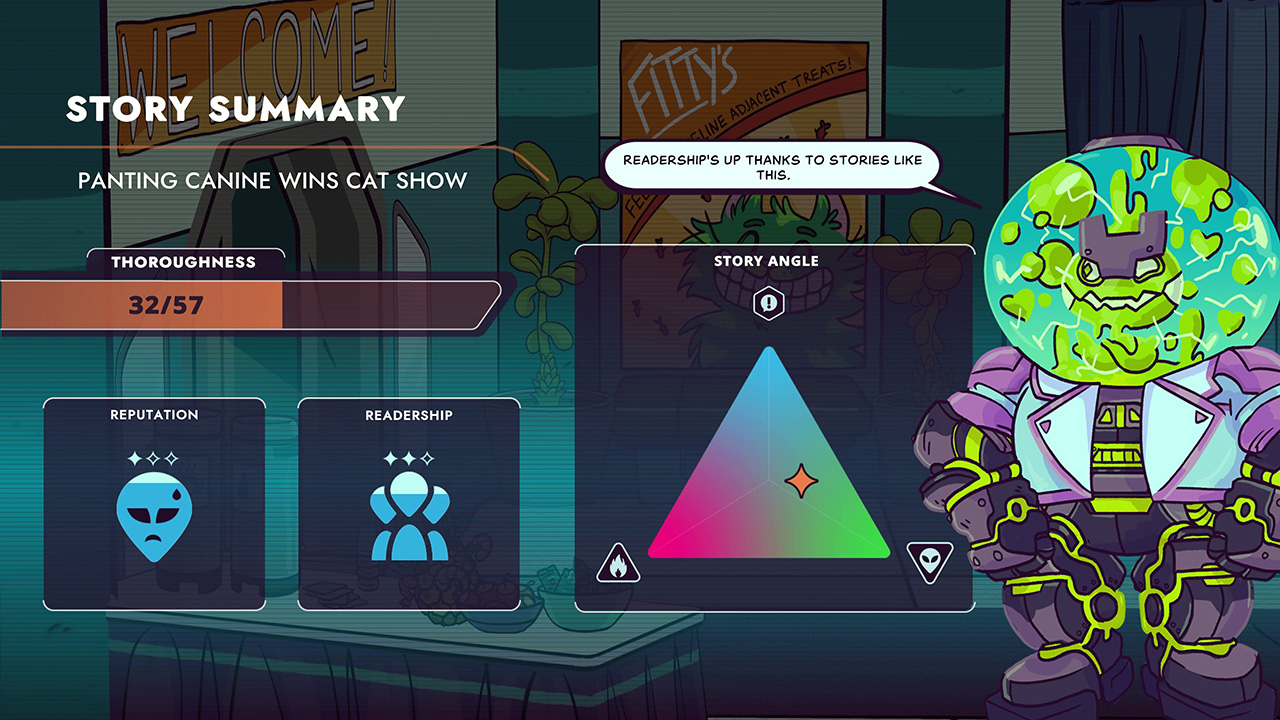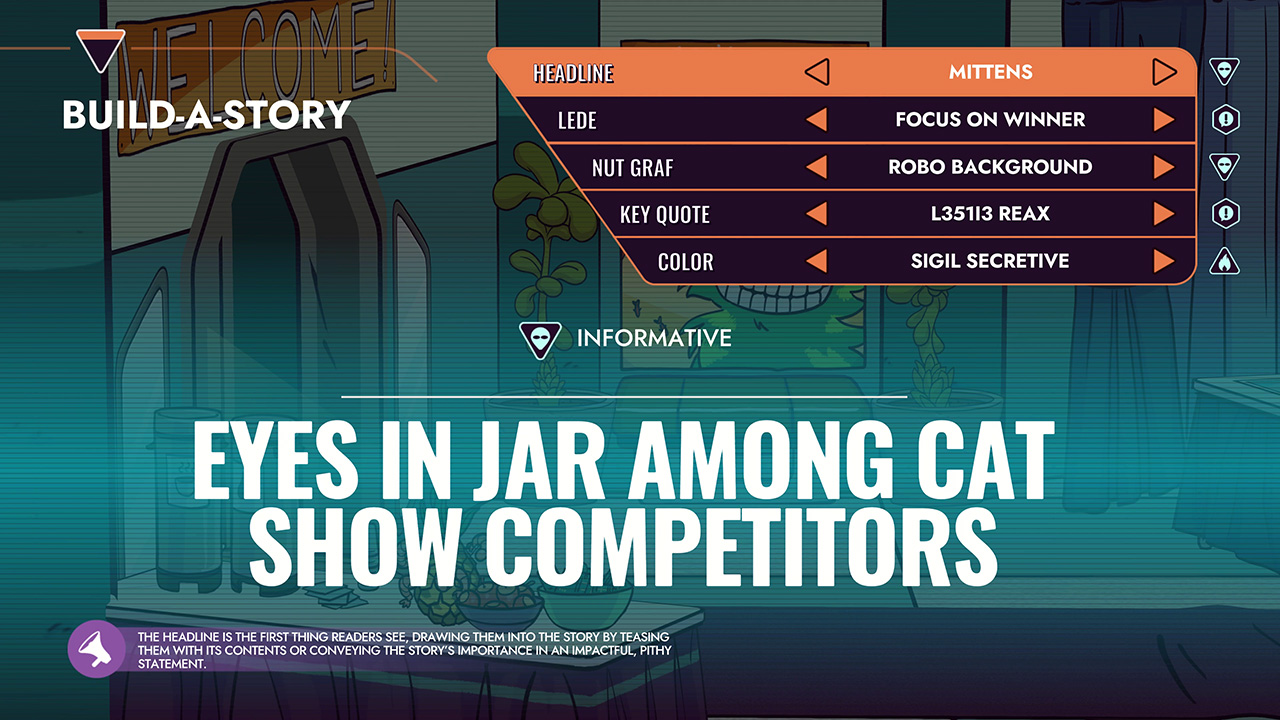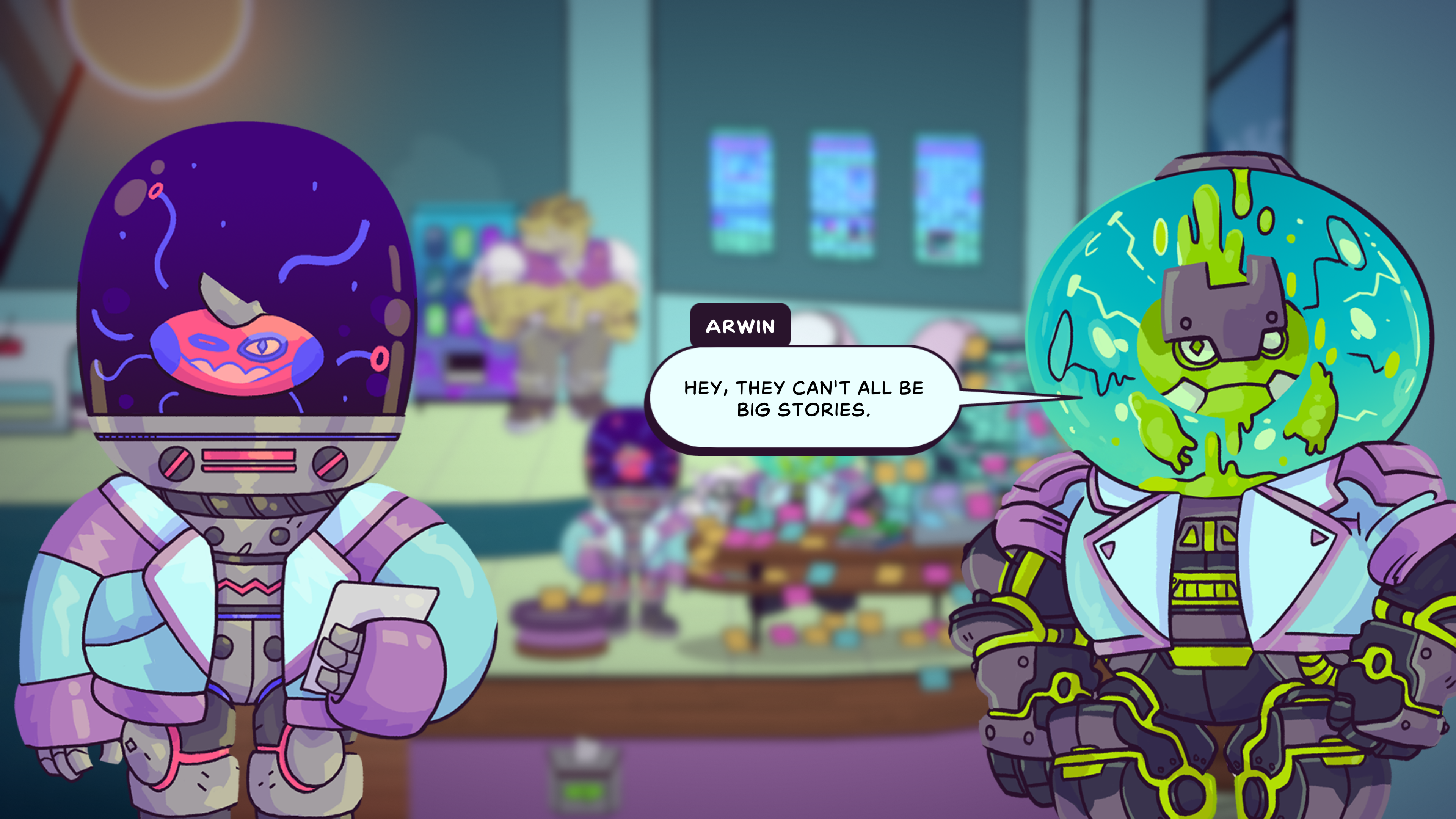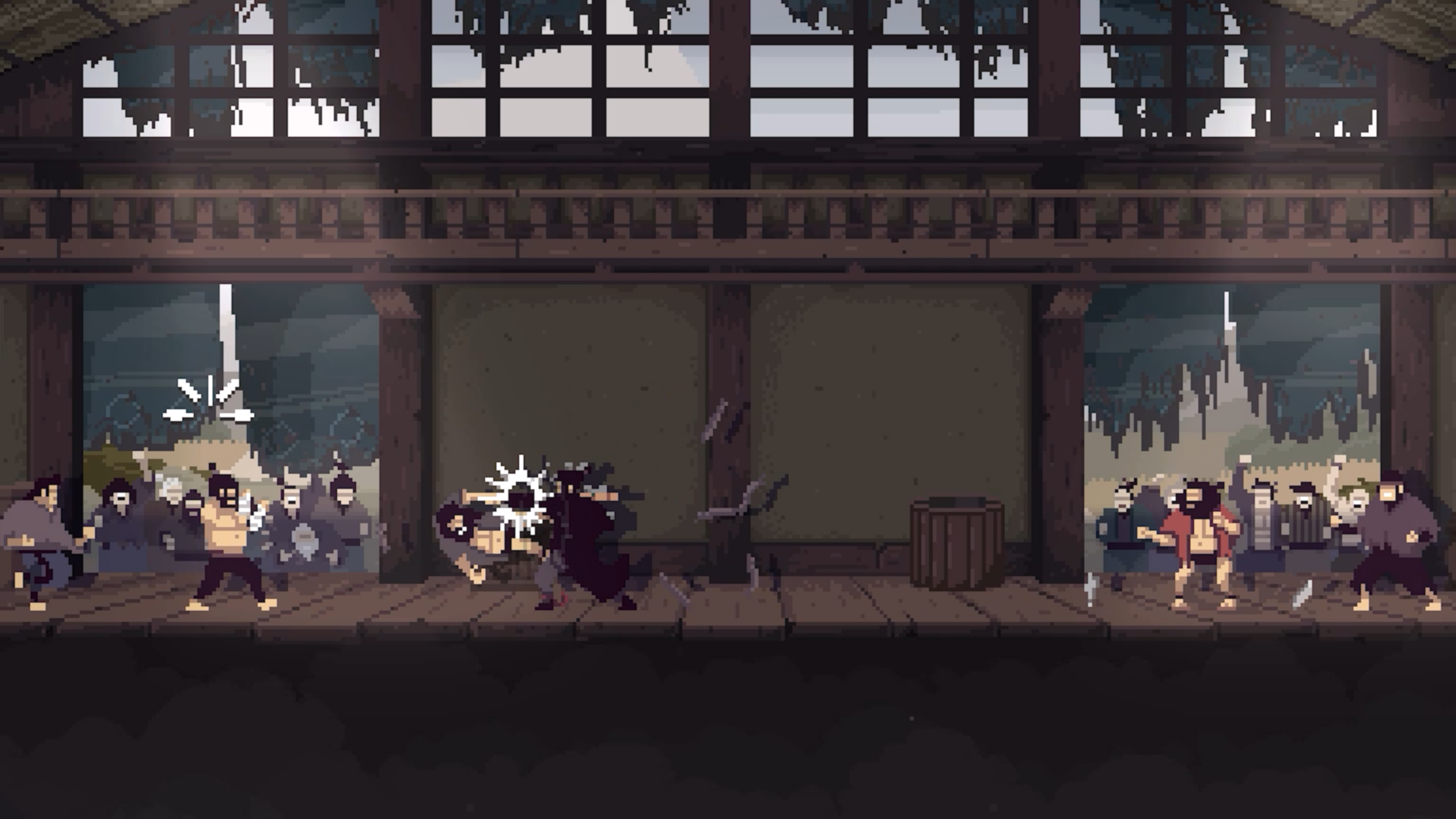Review: Times and Galaxy (Nintendo Switch)
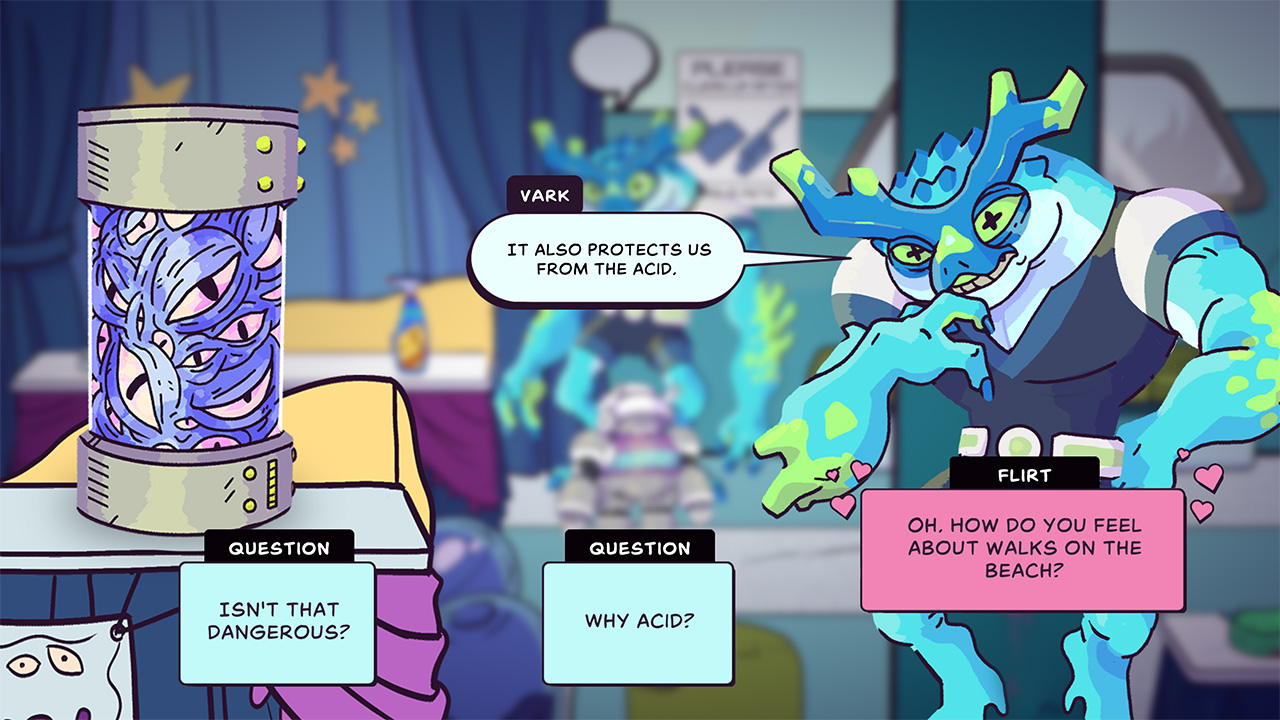
I really enjoy new games, and by that I mean games that have a premise I’ve never seen before. In Times and Galaxy, you play a robot whose essential mission is to…report the news.
No lie, you’re the first Reporter-Bot programmed to go out and interview people, ask questions, look into the facts, and then file a story. Nevermind the larger questions of how a union might feel about this, you tromp about, from story to story, going through dialogue trees and putting together the best article possible based on the decisions you make about with whom you talk and what you ask.
It works like this; you’re assigned a story (or choose one in later episodes) and travel to the far-flung planet where the news is taking place. You walk up to someone and ask questions. But here’s the thing; you can’t explore every single avenue of a dialogue tree. Ask one question, give one answer, and other options will disappear. And after people are done talking to you, you’ll be unable to interview them again, shutting you out of options for filing your story. In some circumstances, talking to one subject will prevent you from talking to a different subject!
Once you’ve finished gathering what information you can, you’ll have to assemble your article, based on your headline, quotes, summary, color, and other aspects. Each of these choices have pluses and minuses based on how interesting or salacious they are. Will you be a tabloid journalist to increase your circulation (but reducing your reputation), or will you go “strictly the facts” but be boring?
Unfortunately the game makes these choices rather obvious, as they display, literally, what the effects of your decisions will be. If you’ve done the basics and interviewed everyone, you’ll be able to put together a balanced story that will both inform your audience and keep them interested.
On the ship that serves as your publishing house, you can talk to your co-workers. This is mostly filler and, as far as I can tell, doesn’t affect the game at all, except that the game is set up as if it’s a TV show; each mission that you go on gets a brief opening sequence describing who it was written by.
The whole premise of the game is based on an edutainment idea of explaining how journalism works, in an extremely goofy way. For example, in one assignment covering sex education, you’ll learn that humans in this world literally do wait for a stork to arrive. In another, the winner of a cat show is…unconventional. I was expecting that in these stories I would be able to break a story wide open, but no, that’s just how things work here. The audience is clearly to teach a younger audience the basic tradecraft of news writing.
There’s some replayability. If you’re offered a choice of stories, you can’t go back and cover ones you missed. Also, at the end of missions, the filing system will point out story options you’ve missed (though not how to get them). There doesn’t seem to be a point in filing a bad or salacious story, and unless I missed something, talking to your coworkers was entirely pointless.
I also ran into a massive bug in one mission that crashed the game and made further progress unplayable. Since Times and Galaxy auto-saves only at crucial points, I wasn’t able to go back and hit a dead end. And frankly I wasn’t willing to restart a game that was only a mildly interesting bit of edutainment about journalism.
Who is this game for? I’m not sure. I’m guessing it’s for parents who want their kids to understand what actually goes into real reporting of actual stories, weighing the pluses and minuses of what voices they decide to amplify. But there’s no real weight to these decisions, and there’s so much filler (in terms of spending minute after minute talking to the various other writers on the ship about their personal nonsense) that doesn’t affect the game that it’s hard to care.

